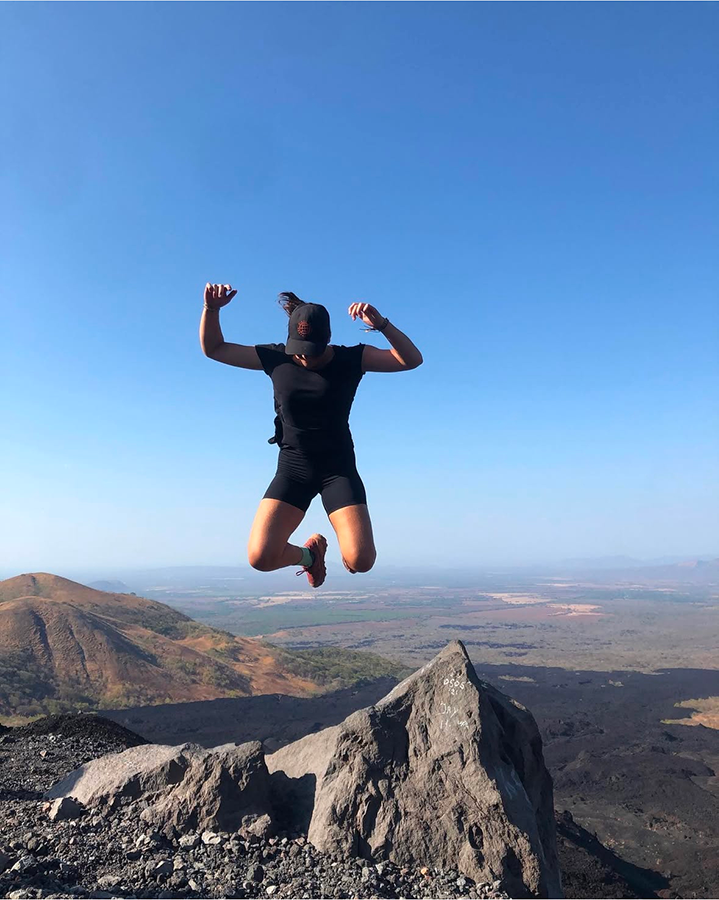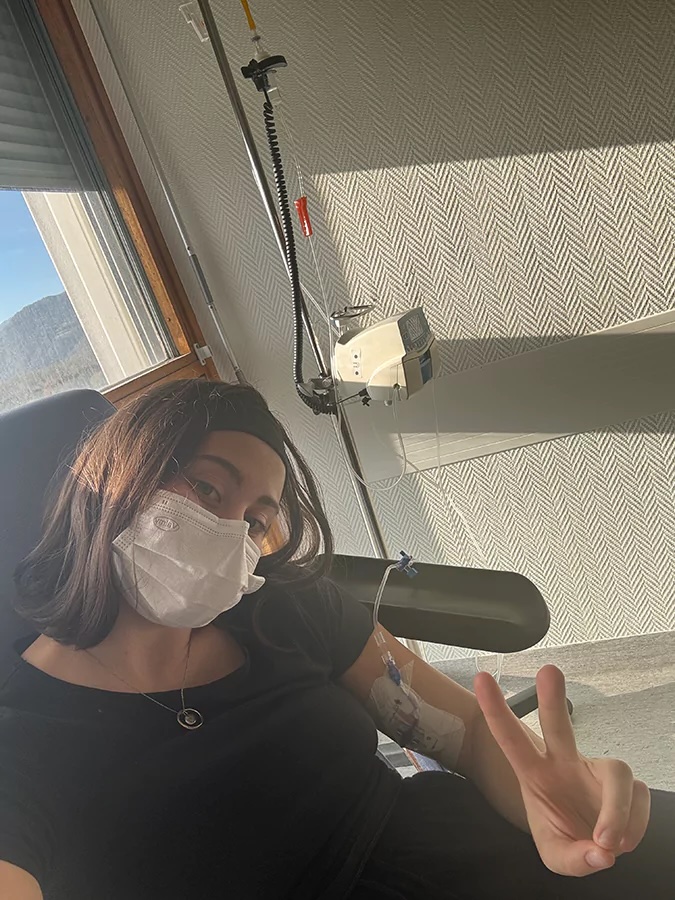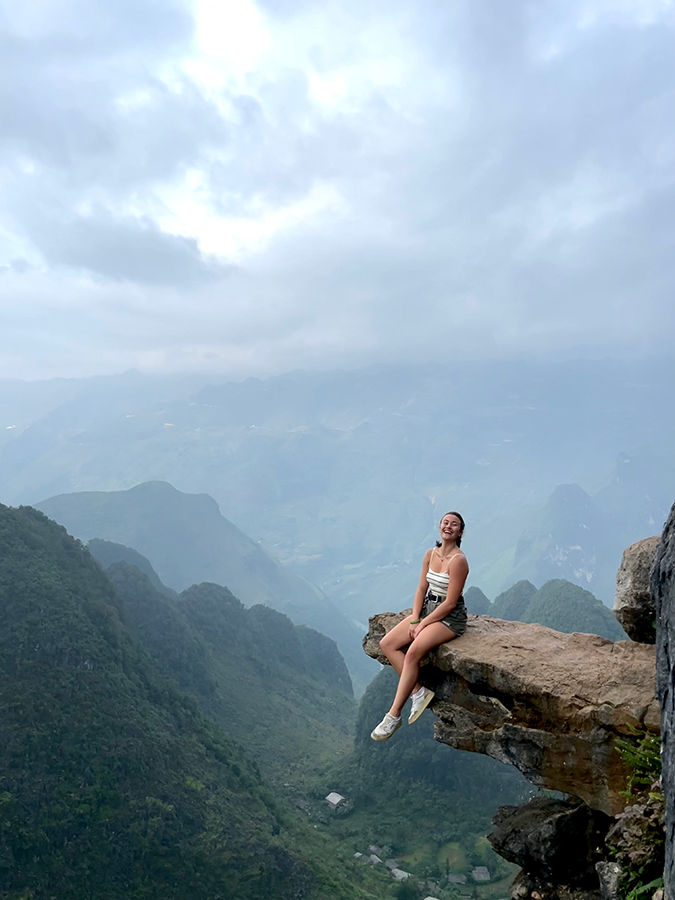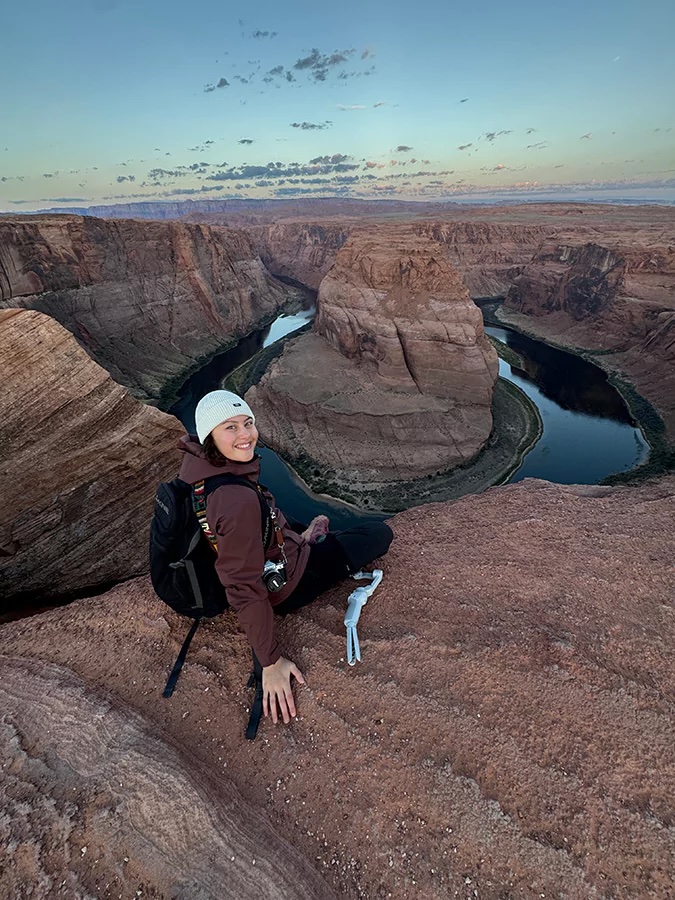A desire to discover the world

I’ve always had an intrinsic need to be on the move and a desire to travel and explore. With an Italian mother and a French-Austrian father, I grew up surrounded by different cultures, foreign languages, and tales of travel adventures.
In 2013, I started sharing videos of my creative hobbies on YouTube without any real expectations. I was only 10 years old, and it was really something I loved doing. I’ve always been driven by the idea of passing on and sharing my knowledge. I thought, “What would I have liked to learn on the internet? I can teach that to someone else.”
Then, when I was 14, I had the opportunity to go to the United States for a five-month school exchange. That trip was a turning point in my life. It was then that I realized I wanted to travel as much as possible and study abroad.
So, I set out to build the future I envisioned for myself. After graduating from high school, I followed a traditional path, enrolling in a business school in France with an English-language program that offered the option of studying abroad right from the start. Very early on I felt out of place. My way of thinking, my desires, my hopes—nothing really fit with the new environment I was in. I realized I didn’t belong there, which had a big impact on my mental health. After a few months, I made the best decision of my life—to quit school and travel the world.
I found some work and my parents generously supported me financially, which allowed me to save money for traveling. On September 13, 2022, I took off on a year-long trip. I hadn’t planned anything in advance. I wanted to just be free to go with the flow. I ended up visiting eighteen countries, became a yoga teacher, and discovered some extraordinary places. I documented my trip on social media, not with any particular strategy in mind, but simply because I wanted to share a different way of life.
Dropping out of school is often seen as a controversial choice or is viewed negatively by society. However, taking a step back to get to know yourself better, explore new horizons, or simply learn in a different way can be a deeply enriching experience. There is nothing wrong with it—quite the contrary. That’s what I tried to show on social media. I was lucky enough to experience 365 days of total freedom, discovery, and challenges. It was a great opportunity for me to be able to take this time, and to have the means to do so thanks to the unfailing support of my loved ones, but it was also, above all, an experience not to be missed.
A rude awakening
As planned, my year-long journey came to an end on September 13, 2023. I was exhausted from the fast pace of my adventures, but happy and full of plans: I wanted to start my own Community Management business, take training courses, and be free to travel with my work. I was full of enthusiasm and, above all, certainty: it was unthinkable for me to slip back into the mold of a life that had already been mapped out for me. What I wanted was to continue living differently, to create a life in line with my values and my quest for freedom.
But life has a way of reminding us that it can change in an instant. A few days after my return, I started experiencing severe and unexplained headaches. After waking up in intense pain and vomiting on an empty stomach, my mother had the instinct to take me to the hospital. The doctor gave me a CT scan and then an emergency MRI, and the diagnosis was clear—a tumor the size of a golf ball in the right frontal lobe of my brain.

Everything happened very quickly after that. I had to undergo emergency surgery on October 3, 2023. Surprisingly, I was not very apprehensive about the operation itself, but it was the hospitalization that worried me, and the feeling that my body had betrayed me. After the operation, I was in the hospital for a week and then spent a few weeks recovering. To be honest, before the biopsy results came back, I was convinced that the tumor was benign. It was a huge shock when I had to make the decision to start treatment. So, I underwent chemotherapy for six months, followed by seven weeks of proton therapy. My body became a prison that I no longer had control over. I had always charged headlong through life, and now I was completely dependent on care.
When they told me I had cancer, a high-grade oligodendroglioma, at that age, my whole world fell apart. How can you cope with a diagnosis like that when you’re 20, with no financial or professional stability? I found myself in a world that was completely foreign to me: hospitals, treatment programs, and doctors who all spoke in unfamiliar terms.
Coming to terms with a new reality

Those months taught me one essential thing: you only truly discover your strength in in the face of adversity. I had to relearn how to live in a different way, to accept that my body had its limits, and to see my plans in a different light.
The day of my operation, I thought about the training course that I was supposed to start that very same day. I was forced to delay everything, and I was beginning to wonder whether I would ever have the desire or the strength to do it.
That basic digital marketing course became a goal—a way to prove to myself that I could carry on as before. By the time I finished the course, I had already secured clients and started working with them.
I started freelancing during my first round of chemotherapy. I didn’t have much leeway to adjust, but it was the only thing keeping me afloat. I was very committed to the project, but it was difficult to find clients when I couldn’t guarantee my availability. How do you start building something when you don’t even know if you’ll have enough energy to get out of bed the next day?
My type of tumor is treatable, but it can’t be cured. A recurrence is almost certain at this point, and according to the doctors, it’s only a matter of time. So, I quickly realized that I needed to start working toward the stability I would need in the future, when I got sick again. I also realized that it would be a struggle, one that I was imposing on myself, given that I had plenty of stability thanks to my parents.
I had to juggle between days when I had a little energy and days when I was glued to the couch. It was a lot of pressure and a heavy mental burden, but it helped me keep going. My professional career, as well as my need for financial stability and independence, were my driving forces.
Then came the post-cancer period, which is rarely talked about. When the treatment becomes less intensive, the doctors tell you that that they are monitoring the disease, but for you, you’re still in midst of chaos. I became really afraid of losing my independence and money, and my relationship with consumerism became obsessive. How do you find the balance between being a young adult and being sick?
At this point, I no longer have a fixed chemotherapy schedule or constant trips to the hospital, but I do have overwhelming fatigue, invisible side effects, and a life to rebuild. When you’re 20, administrative tasks seem more complicated. It’s an additional mental burden, and I needed help managing everything. If I focused on my professional life, I didn’t have the energy to exercise, eat well, or take care of myself.
In the months following the end of my treatment, my personal well-being became my priority. My social battery is constantly drained. The three main parts of my life—personal, professional, and social—were all turned upside down without me even realizing it. My post-cancer life isn’t a return to normal; it’s an uncertain transition between who I was before and who I need to become now.
Reclaiming my life
Now, at 22, I realize that life is very short. Time is flying by at breakneck speed, and I worry that I don’t see my loved ones enough. I’m afraid that everything will disappear and that I won’t have had time to appreciate it. I don’t want to let the disease define me. I know it’s there, it’s part of me, but it won’t stop me from living.
I continue to share my journey on social media, not to elicit pity, but to give a voice to those who are going through the same thing. We don’t talk enough about what it means to be sick at a young age. The impact on your career, your finances, your social life. There are mountains of paperwork to navigate and medical decisions to make, not always with a full understanding of what’s involved. At seven months out from the end of my treatment, I’m still in a fog. Cognitive side effects are coming to the surface and taking up a lot of space.

Without my loved ones, my daily life would be unbearable. The road to independence is a long one. I’ve gone back to work, in an office, with flexible working hours. I’m a long way from working full-time, but being back at work allows me to maintain a balance, talk about things other than cancer, and, above all, make sure I have a basic income at the end of the month. I often worry that I’m letting down the person I was when I came back from my trip, full of dreams. But to move forward, I have to rebuild myself in a different way, taking into account my new limitations and my new outlook on the world.
I want to believe that, despite everything, the future can be bright. I still have dreams to achieve, places to explore, experiences to live. Illness has taught me that life is uncertain, unpredictable, and that we should never wait to do what makes us happy.
Yes, cancer has turned my life upside down. But it doesn’t define me. I’m the one who decides the story I want to write.
